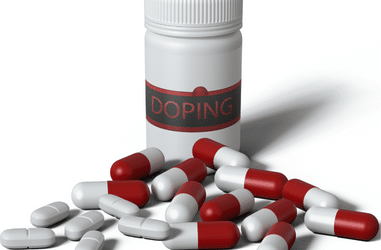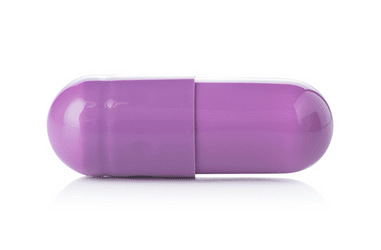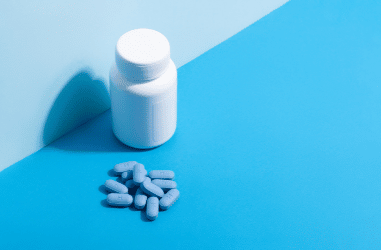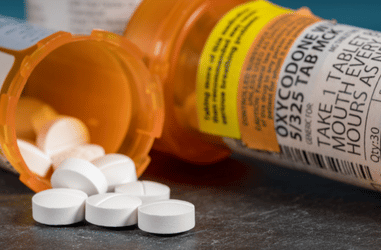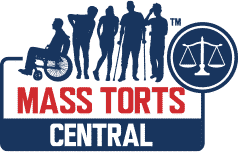Prescription Drug Injuries
Prescription drugs are medications that a doctor prescribes to treat a medical condition. The Food and Drug Administration (FDA) has strict regulations governing the manufacture and marketing of prescription drugs. However, prescription drugs can pose serious risks to consumers if they are used improperly or if they contain harmful ingredients.
The FDA receives thousands of reports yearly regarding serious prescription drug injuries. These injuries can range from mild to severe and may be life-threatening. According to Johns Hopkins patient safety experts, there are over 250,000 deaths per year due to medical malpractice, some of which result from negligent prescribing practices.
When this happens, the patient may suffer from severe side effects. In these situations, it is important to work with an attorney. A lawyer will help determine whether or not it was negligence on behalf of the drug company or physician and help pursue compensation.
Types of Prescription Drug Injuries
The following are some of the most common prescription drug injury cases:
Prescription Drug Overdose
An overdose occurs when you take too much of a drug intended for your body to process. This can lead to serious side effects, including death in extreme cases. If an overdose has injured you or someone you love, there may be grounds for a lawsuit against the drug manufacturer and/or doctor who prescribed it.
Prescription Drug Side Effects
While many prescription drugs have well-known side effects listed on their packaging materials, sometimes those side effects can be overlooked or not properly explained. When this happens, the patient may suffer from severe side effects without knowing what caused them or how to prevent them from happening again. In these situations, it is important to work with a lawyer to help determine who was at fault and seek justice.
How Do I Know if I Am at Risk?
Prescription drug injuries are a growing problem in our society, as they can cause serious injuries when used incorrectly. These injuries range from mild to severe and may be life-threatening.
Many people do not realize how dangerous prescription drugs can be until it is too late. Some prescription drug injuries in the US have led to dangerous drug lawsuits. Some of the most common side effects associated with prescription drugs include:
- Nausea and vomiting
- Vomiting blood or bleeding from the stomach
- Diarrhea or constipation, which can lead to dehydration
- Headache, dizziness, or fainting spells
- Swelling of the lips, throat, or tongue
- Difficulty breathing
- Chest pain
- Nausea
- Seizures
- Confusion
- Drowsiness
- Unusual behavior, including agitation
- Fever and chills
- Heart attacks
- Strokes
- Kidney failure
Types of Dangerous Drugs That Can Cause Injuries
The most common dangerous drugs that can cause injuries include but are not limited to the following:
Diabetes Drugs
The most dangerous drug for the heart is a class of diabetes drugs known as SGLT2 inhibitors. They have been linked to thousands of cases of ketoacidosis. This life-threatening condition occurs when the body produces too many ketones by blocking the kidneys from getting rid of excess glucose in the urine.
Ketones are byproducts of fat metabolism. The excess ketones build up in the bloodstream and can lower blood pH levels, leading to acidosis. Symptoms include nausea, vomiting, abdominal pain, fatigue, and confusion. In severe cases, it can lead to coma or even death.
Antidepressants
Antidepressants are among the most commonly prescribed drugs in the United States and are responsible for many emergency room visits each year due to adverse drug events. Antidepressants can have serious side effects such as:
- Weight gain or loss
- Drowsiness
- Stomach pain
- Headaches
- Dizziness
- Dry mouth
- Insomnia
- Increased risk of bleeding
- Shaking
- Blurred vision
- Sexual Impotence/Decreased libido (in women)
- Birth defects if taken during pregnancy
- Suicidal thoughts or actions (especially in children)
- Irritability/agitation
Antibiotics
Antibiotics are among the most widely used drugs worldwide, and they play an important role in treating infections. However, these medications can also cause side effects such as diarrhea, nausea, vomiting, and headaches. In rare cases, antibiotics can even lead to death.
Painkillers
Painkillers are among the most commonly prescribed medications in the United States. People take these drugs for all ailments, from sore muscles to cancer pain. However, some painkillers can cause serious side effects, including addiction and overdose.
Kidney Dialysis Drugs
Dialysis is a treatment that removes waste products from your blood when your kidneys cannot do so themselves due to disease or injury. Dialysis is often used for people with kidney failure who are waiting for a new kidney or who have had a failed transplant.
Kidney dialysis drugs help people with kidney failure filter toxins from their blood while waiting for a new organ transplant. However, these drugs are very powerful and have many side effects, including dizziness, sleepiness, and fatigue.
How to Prove a Prescription Drug Claim
When you are injured by improper medication, it can be difficult to prove that the medication was responsible for your injuries. In addition, in the case of prescription drugs, there is often a lot of confusion around whether or not the drug was properly prescribed and labeled, making it even more challenging to prove that a defective product injured you.
For you to receive compensation for your injuries, there are several things that you need to prove:
Prove You Are Injured
The first thing you will need to do is prove that the drug injured you. A drug injury can occur in many different ways. It can cause an allergic reaction or lead to side effects. The key is proving that the drug caused your injury.
This is often the hardest part of your personal injury case because it requires expert testimony from doctors and other medical professionals to testify on your behalf. Your attorney will typically retain such experts to provide testimony about the extent of your injuries and how long they will last.
Prove the Drug was Improperly Marked/Marketed
The second thing you will need to do is prove that the manufacturer and/or distributor did not properly label or market their product. This means proving that they did not provide clear instructions on how to use their product or warnings about potential risks associated with using it. For example, if a drug has dangerous side effects but does not warn patients about these side effects, this could be grounds for a lawsuit against the company that produced the drug.
Your attorney should then work with investigators to prove that the drug was improperly marked or marketed in some way. The difficulty here is that government agencies approve most drugs before being sold to consumers, so proving that a company acted negligently may require extensive research into how the product was tested before approval and whether there were any warning labels or instructions for use included with the product at point-of-sale. The more complex this investigation is, the more likely your attorney will work with experts and additional resources — such as paid investigators.
Prove the Prescription Caused Your Injury
Finally, it is important to prove that the prescription drug caused your injury and not something else. Many prescription drugs have side effects. If you were injured while taking a prescription, there are several things you can do to prove that it was the cause of your injury.
This is called “causation”, typically shown through expert testimony from doctors or scientists who specialize in this area of medicine and are familiar with the intricacies of pharmaceutical products.
You should request copies of your medical records from your doctor and the hospitals where you were treated. Ask for copies of all reports or tests done on you and other documents related to your care. These records will help you determine whether your prescription drug injuries were related to drug use. You may also want to ask for copies of all prescriptions given at each visit so that you know how much time elapsed between doses of medication.
What to Do After a Prescription Drug Injury?
If a prescription drug injures you, it is important that you take steps to protect your health and your rights.
Seek Medical Attention Immediately
After a prescription drug injury, the most important thing to do is to get medical attention immediately. You want to make sure that your injuries are treated properly and that it doesn’t escalate. If you’re unsure whether you need medical attention, it’s better to err on the side of caution than not go at all.
Seek Justice – Claim Damages from the Liable Party
If you suffer an injury due to another person’s negligence, you should consider filing a claim for damages. These claims can be filed against the manufacturer of the drug or against the pharmacy that provided the prescription to you. To file a claim for damages, it is necessary to retain a prescription medication injury attorney who specializes in product liability law so they can build your case and ensure that all aspects of your case are properly addressed.
There are many different ways that a lawyer can help you with your prescription drug injury case, which may include:
Determining liability
The first step in filing a claim is determining who is liable for your injuries. This can be a complicated issue because many different parties may be liable in your prescription drug injury case.
- Pharmaceutical manufacturers: Pharmaceutical companies are responsible for the safety of their products and must ensure that they are safe for use by the public. When they fail to do this, they are liable for any injuries caused by their products.
- Prescribers: Doctors, nurses, and other medical professionals who prescribe drugs are responsible under certain circumstances to ensure that they are prescribing them safely. If they prescribe a dangerous or inappropriate drug, they may be liable for the injuries.
- Pharmacy chains: Pharmacy chains often have strict requirements on what medications can be dispensed in their stores. If these requirements are not met and you suffer an injury, then it may be possible to sue them for damages.
Building Evidence
A product liability lawyer will likely gather evidence from all sources, including doctors, hospitals, pharmacies, and other medical professionals who may have treated you or your loved one after an injury or accident. To build evidence, a lawyer will:
- Look into your medical history and records to build your case. Your claim may be hard to prove if there are no records.
- Gather all medical records related to your injury including hospital reports and doctor’s notes. These documents can help show how severe your injuries were and how long it took for them to heal. They also show how much time you missed from work or school following the incident.
- Review other documents such as police reports, witness statements, photographs of the scene, and any other evidence related to your case. This helps lawyers build their case against the drug company that made or sold the defective product.
Filing claims
A lawyer can file a lawsuit on your behalf to obtain damages for your injuries. In some cases, the insurance company may offer you money before the lawsuit even goes to trial if they believe they are going to lose the case. If this happens, all parties involved must agree not to share any information about what happened with anyone else outside of their attorney’s office.
Negotiating Settlements
Your lawyer will negotiate with the defendant for fair compensation for their losses. A mass torts lawyer will represent your interests and negotiate with the defendant for fair compensation. In addition, they will help you determine if it is a good option to resolve your claim against the defendant or file a lawsuit.
The most common types of damages that can be recovered in a prescription drug injury claim are:
Medical Expenses – The injured party may seek recovery for all treatment costs, including hospital bills, doctor bills, prescription drugs, and other medical expenses.
Pain and Suffering – The injured party may be entitled to compensation for pain and suffering that they experienced due to the prescription drug injury. This includes any physical or emotional trauma that occurred as a result of the incident.
Loss of Wages – If you have lost wages due to your injuries, you may be able to recover those losses through your lawsuit against the liable party.
Loss of enjoyment of life – If your injuries have affected your ability to enjoy life normally, you may be entitled to recover an amount representing this loss of enjoyment.
Get Legal Help with Your Prescription Drug Injuries
If you have been injured by a defective prescription drug, a personal injury lawyer can help you gather all of the information needed for filing a claim against the liable party. We have a wide network of lawyers who can build a strong case to help pursue damages. Call us today at 1.844.448.6787 for a free consultation.
